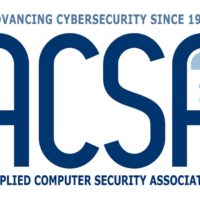CRA-W Career Mentoring Workshop held at SIGCSE 2013
By Susan Rodger and Sheila Casteneda
Originally Printed in the Winter/Spring 2014 Newsletter
On March 6, 2013, the day before the SIGCSE 2013 Sympo-sium in Denver, Colorado, the CRA-W provided a full-day Career Mentoring Workshop for Educators (CMW-E) for women faculty and graduate students interested in teaching careers. Specifically, the workshop targeted women faculty early in their career who are in teaching-track or teaching-focused positions or female graduate students close to finishing their PhD who are interested in such teaching positions. By co-locating with SIGCSE, the attendees were encouraged to stay to attend the SIGCSE Symposium.
The workshop brought together thirty attendees in which two-thirds were assistant professors or similar positions and one-third were graduate students late in their studies. The workshop was a chance to encourage new attendance at the SIGCSE Symposium as 64% of the attendees had never attended the SIGCSE Symposium before, and 23% of the at-tendees had only attended the SIGCSE Symposium once. The attendees were able to spend the day getting to know seven speakers who were all at the rank of Associate Professor and above, and to get advice from them on how to have a successful academic career. The speakers attended the whole day so they could network with the participants at breaks and also contribute to the discussions.
Advice was given on many topics to help survive those early academic years. A session on teaching survival talked about thriving as a teacher and making your courses active, interest-ing and relevant, creating the type of course that you would like to attend. The types of engagement discussed included flipping the classroom, telling stories and using manipulatives.
A session on promotion and tenure discussed the general process, ways to increase your success, and challenges and strategies one might face. A session on networking strategies discussed how to make professional connections at confer-ences, which was especially helpful as they could try out the advice over the next few days while attending the SIGCSE Symposium. A session on mentoring discussed both how to find a mentor and how to be a good mentor. Participants were encouraged to get mentors as research on mentoring shows that those who are mentored achieve greater career advance-ment than those who are not mentored. Other advice included getting more than one mentor, and if an assigned mentor is not helpful then to seek out an additional mentor. A session on time management discussed how to organize your day including a suggestion on balancing your day into one-hour increments, creating daily and long-term to-do lists, and sticking to your schedule. Other tips including setting time aside for email, and it is ok to close your office door to get work done. The slides for these and other sessions are available on the CRA-W website.
The workshop was organized by CRA-W board members Sheila Castaneda from Clarke University and Susan Rodger from Duke University. Speakers at the workshop were Shannon Duvall from Elon University, Jodi Tims from Baldwin Wallace University, Ellen Walker from Hiram College, Lori Pollock from the University of Delaware, Kelly Shaw from the University of Richmond, and Andrea Danyluk from Williams College.
2013 was the 7th time this workshop had been held, since the first workshop was held in 2002. It occurs about every other year co-located with SIGCSE.
We were wondering what the impact was for those women who attended an earlier workshop, so we asked some former participants to comment on the impact since then. Here is a response from a woman who attended the 2009 CRA-W workshop.
“I attended the 2009 CRA-W Career Mentoring Workshop in my second year as a tenure-track professor. The most important part of that workshop was networking with other new teaching faculty about their challenges and successes in courses to help improve my teaching. Even though the work-shop was 4 years ago, I remember hearing about a different approach to algorithms assignments (a course that is out of my area and that I was teaching for the first time) and the challenges and rewards in teaching a software development course with teams working on projects for actual clients. Getting to attend my first SIGCSE conference after the workshop was a great bonus! I highly recommend such a workshop for gradu-ate students curious about a teaching-focused career or for teaching faculty looking for guidance in succeeding in all their new responsibilities.”
Here is a response from another women who attended the same workshop in 2009.
“The 2009 CRA-W Career Mentoring Workshop was one of many events over my academic career that has allowed me to be where I am currently, in my sixth year on the tenure-track at a liberal arts college. The workshop connected me with women in computer science as a whole, many of whom I would not have met at the research conferences I usually attend which are sub-field specific. It gave me information about a number of ideas and resources for research, teaching, and general career advice. For example, because of one of the pre-sentations I obtained a set of snap beads that a friend’s toddlers had outgrown to use when teaching about linked lists. I have been in sporadic contact with a few fellow attendees over the years, and knowing a few more faces has made networking at subsequent SIGCSE conferences easier.”
It was nice to see that this participant was still using manipula-tives she learned about to teach linked lists and still attending SIGCSE.
The next CMW-E workshop will coincide with SIGCSE 2015. CRA-W holds similar mentoring workshops for women start-ing out in research on either the academic track (Assistant Professors), called CMW-R and for women in industry and labs at a similar level, called CMW-L. In addition, CRA-W holds a mentoring workshop, called CAPP, for women at the Associate Professor level (research or teaching focused) and the equivalent level in industry and labs.





